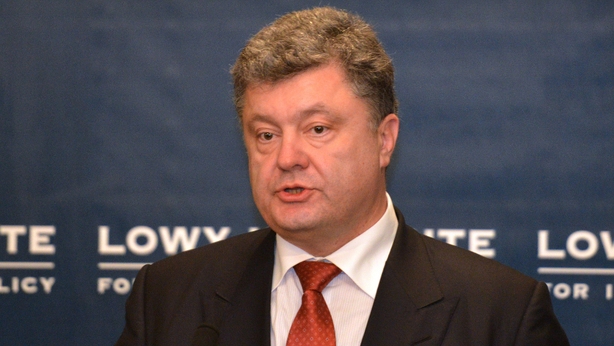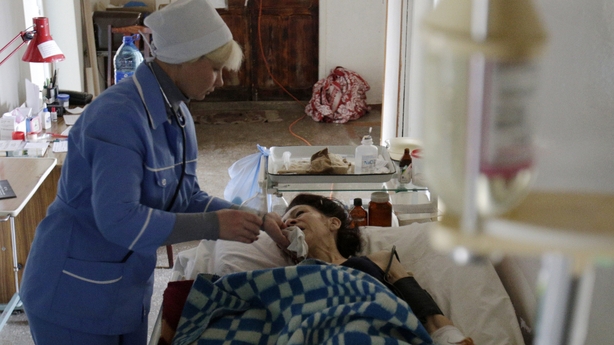Ukrainian President Petro Poroshenko has said a "real" ceasefire is in place in his country after the first 24 hours in seven months without a military casualty, although he admitted the stand-off was fragile.
"I have positive news. Today is the first 24 hours for seven months ... when we have a real ceasefire in Ukraine," he said during a trip to Australia.
"You simply can't imagine how important it is for me. This is the first night when I don't have either a lost or wounded Ukrainian soldier."
 The ceasefire with pro-Russian rebels was introduced on Tuesday in the hope of ending an eight-month conflict that has claimed at least 4,300 lives and displaced close to one million people, according to United Nations figures.
The ceasefire with pro-Russian rebels was introduced on Tuesday in the hope of ending an eight-month conflict that has claimed at least 4,300 lives and displaced close to one million people, according to United Nations figures.
A Ukrainian military spokesman said today that three soldiers were killed and eight injured in the day preceding his comments.
But Mr Poroshenko said the past 24 hours had passed without incident and that if the ceasefire held it would be "a great step for peace and stability in Ukraine".
But he warned it had only been 24 hours.
"Everything is so fragile. But I pray that we should continue this process," he said.
The process is being closely watched in Europe, where concern over Russia's support for the rebels has plunged East-West relations to their lowest ebb since the end of the Cold War.
The two sides, along with Russian and European monitors, are still trying to organise comprehensive peace talks.
Mr Poroshenko said the conflict in his homeland was not just about Ukraine's independence and territorial integrity.
"This is a war for freedom, global freedom. This is a war for democracy, global democracy and this is the war for security, global security," he said.
However, the Ukrainian government says it will conscript 40,000 soldiers in 2015 and double its military budget as it tries to meet the demands of the ongoing conflict.
"We foresee calling up 40,000 men in 2015 and training 10,500 people who will do their service (as professional soldiers)," Defence Minister Stepan Poltorak told parliament.
Some will replace conscripts who have completed their tours of duty, so Mr Poltorak said the total strength of the armed forces will increase to 250,000 from 232,000 this year.
Ukraine scrapped conscription in October 2013 only to be forced to reinstate it this May in the wake of Russia's annexation of Crimea and the outbreak of a pro-Russian insurgency in the east.
In 2013, Ukraine had only 130,000 people in its armed forces and called up less than 25,000 people for military service.
Elsewhere, NATO accused Russia of refusing any "genuine dialogue" about its increased military activity, saying there'd been no contact between army brass during the seven months of crisis in Ukraine.
The US-led alliance has reported an upsurge in Russian military flights, especially near its Baltic state members, but also further afield around Norway, Britain and far south into the Atlantic.
"It takes two to have a dialogue and until now, Russia has not demonstrated any interest in genuine dialogue," NATO spokesperson Oana Lungescu said.
"Nor has it returned to compliance with international law and its international obligations and responsibilities. So I would refer you to the Russian authorities for any further questions."

